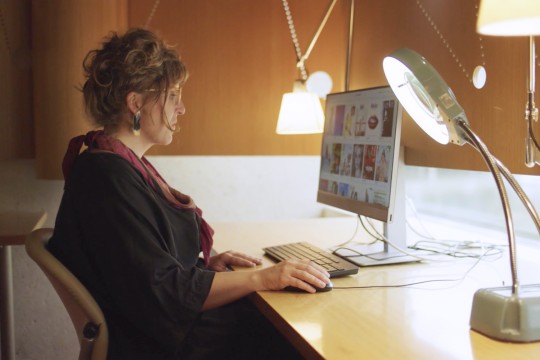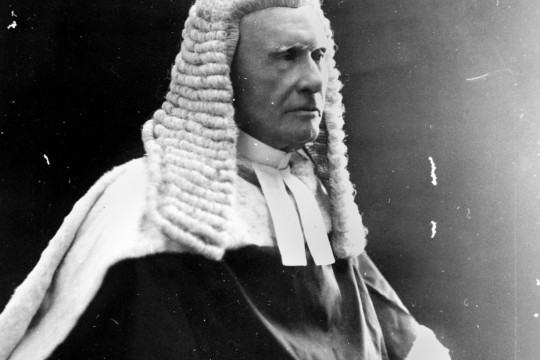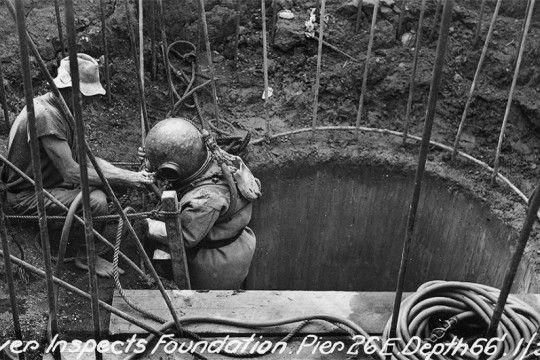- Home
- Research fellowships FAQs
/
Research fellowships FAQs
Answers to frequently asked questions about our research fellowships.
Applications must be submitted through SmartyGrants. A link to the Fellowships application form will be available on the State Library Fellowships and Medals webpage during the annual call for nominations, which generally opens mid-year.
- Australian residents including interstate residents. It is expected that a portion of your fellowship will occur onsite at State Library.
- Applications are accepted from any discipline or professional background for projects that involve research using State Library collections. This includes but is not limited to researchers, artists, creatives, filmmakers, digital media practitioners, data scientists, musicians and composers, curators and arts professionals, writers, independent scholars and other creatives. Applicants from both academic and non-academic backgrounds are encouraged to apply.
- Applications are accepted from individuals or pairs (maximum two co-applicants).
- Projects already underway or with other funding are eligible, but this must be disclosed in the application.
- Relevant archives or collections in other cultural institutions and companies can also be used.
- Queensland Government employees must upload a letter or email of support from their manager.
- Projects forming part of postgraduate studies are not eligible.
- Australian Research Council (ARC) or university research teams are ineligible.
- Applicants must reside in Australia.
- Current State Library staff and Board members are not eligible to apply.
Your application should address the selection criteria set out in the guidelines and include :
- short biographical statement and CV (max 3 A4 pages)
- short description of your project and its relevance
- short description on how your project will use, interpret, respond to or contribute to John Oxley Library or State Library collections
- brief overview of project goals, scope and timelines
- anticipated outcomes
- three (3) referees
- if applicable, details of other funding sources for the project and why fellowship funding is required, and/or details around what stage the project is in if it is not a new project
You have the option of submitting supporting material, such as a letter of support.
Yes. You can save your work as many times as you like before you submit.
Recipients are announced at the annual State Library Fellowships and Medals announcement ceremony in November. Fellowships begin the following January after a half-day induction and run for 12–15 months until the annual Research Reveals event in February or March the following year.
- Contribute at least three (3) articles to State Library’s John Oxley Library Blog related to your research.
- Provide two reports during the fellowship: a mid-year update and a final report at conclusion.
- Deliver a 20–30 minute public talk on your research project at our annual Research Reveals event.
- Compile and submit an annotated bibliography listing key materials used in your research.
- Deposit a copy of any work, new material produced, or newly brokered collection material during the fellowship to be added to State Library’s collection.
- Be available for publicity, including media interviews and social media engagement.
- Participate in creating a digital story or filmed presentation about your fellowship or project.
- Ensure all research outcomes acknowledge State Library of Queensland.
- Each application is checked for completeness and eligibility by State Library of Queensland.
- Eligible applications are then forwarded to an independent judging panel made up of professionals with expertise in the related history field.
- Judges read and assess the applications against the selection criteria.
- Judges decide on a shortlist and one successful applicant for each category.
- The panel may require an in-person interview with shortlisted applicants for more information.
- Judges award the applicant who best meets the selection criteria. Only one successful application can be selected per category.
- The judges may, at their discretion, consult with other experts to assist in evaluating the merits of each application, including contacting the applicant's referees.
- The judges may, at their discretion, move an application to an additional or different category if they feel the application is more relevant or also relevant to that category.
- The outcomes of the judging process are final, and no discussion or correspondence will be entered into regarding decisions or the judging process.
- Judges may not award a category if there are not applications of suitable merit.
- The names of the judges will be published at the conclusion of the judging process.
- Judges must disclose any actual, potential, or perceived conflicts of interest as soon as they become aware of them. State Library of Queensland records all conflicts of interest, perceived, potential and actual. The conflict of interest is managed by the State Library.
Each fellowship has specific selection criteria used by the judging panel to assess and select a recipient each year. These criteria are outlined in the Fellowships Guidelines document, available on the State Library Fellowships and Medals website during the annual call for applications period, or linked from the Smarty Grants application form.
Read this document carefully and keep the selection criteria in mind when preparing your application responses.
Judging panels consist of subject experts relevant to the fellowship they are assessing, offering a diversity of perspectives and experiences. The names of all judges are published on the Judging webpage after the judging process is completed each year.
Applicants are notified of their application outcome about six weeks after the closing date, once judging is complete. Notifications are sent to the email address used to submit the application in SmartyGrants.
Recipients and the topics of their research projects are announced publicly at the annual State Library Fellowships and Medals announcement ceremony, usually held in November.
You may request feedback by emailing fellowships@slq.qld.gov.au.
The judges may ask you to attend an interview if they need more information about your application.
Most fellowships start in January and run for 12 to 15 months, concluding with a 20–30 minute presentation at Research Reveals, held in February or March the following year.
During the fellowship, you will be required to complete a few deliverables, including blogs, progress reports, an annotated bibliography, and your public talk at Research Reveals.
No. Late applications will not be accepted.
Currently, the fellowship stipends are:
2025
- John Oxley Library Fellowship – $25,000
- Monica Clare Research Fellowship – $20,000
- Rainbow Research Fellowship – $20,000
- Queensland Heritage Register Fellowship - $20,000
- Royal Queensland Show (EKKA) Fellowship - $20,000
- Queensland Business Leaders Hall of Fame Fellowship – $15,000
- Digital collections catalyst - $15,000
- Letty Katts Fellowship - $5,000
2026
- John Oxley Library Fellowship – $25,000
- Monica Clare Research Fellowship – $20,000
- Rainbow Research Fellowship – $20,000
- Royal Queensland Show (EKKA) Fellowship - $20,000
- Queensland Business Leaders Hall of Fame Fellowship – $15,000
Funding is provided as a stipend, paid in three instalments over the year. The funds are considered a prize, and there is no requirement to reconcile expenses.
For more information on each fellowship see the State Library Fellowships and Medals webpages.
Expenditure of stipends is at the fellow’s discretion to support their project. There is no requirement to report on spending or complete any acquittals.
Our fellowships are open to all Australian residents. Fellows are expected to spend some time onsite at State Library to access unique collections and staff expertise.
Yes. Induction includes a building and repository tour, familiarisation with your shared workspace in the Neil Roberts Research Lounge, and an overview of special fellowship membership privileges. You’ll receive basic training on using the catalogue to find collection material.
A librarian will guide you through the donation process and standards for digital collections if your project involves adding new material to our collection. You’ll also meet key State Library staff and undertake a general orientation to help you start your research project.
Your application should include information on how you will use or contribute to State Library collections. You can find collection material by searching the Library catalogue (OneSearch) and State Library website. You can also chat with a Librarian or log a request via Ask Us
Yes, the application form allows you to select and apply for multiple fellowships with one submission. However, you should tailor your application to suit the selection criteria of each fellowship. As a result, many applicants still choose to submit multiple applications.
Yes.
Yes.
Yes! Anyone can apply that meets the eligibility criteria.
Yes. Applications are accepted from individuals or co-applicants (maximum of two individuals).
No, however co-applicants (maximum of two individuals) can apply.
Yes. Some of your time will need to be spent onsite at State Library so that you can access unique and significant collections and staff expertise.
Yes. Please indicate on your application what funding you have received, and what stage your project is at.
Yes. Your project may be at the beginning or already in progress. Please indicate what stage your project is at in your application.
No. You must reside in Australia and be able to meet the deliverables of the fellowship.
Yes. You will need to provide three referees.
The biggest tip is to address the selection criteria in the Guidelines document when crafting your application answers.
Consider attending the annual Fellowship Information Night held during the call for applications; last year’s recording is available to watch.
Many helpful resources are on the State Library Fellowships and Medals webpage, including a ‘tips’ video and past fellows’ testimonials in the Vimeo Showcase.
Your application should explain how you will use or contribute to State Library collections. Search collection material via the Library catalogue (OneSearch) or State Library website. You can also chat with a librarian or submit a request via Ask Us.
Keep up to date on the latest news via our State Library Fellowships and Medals webpage, follow State Library's Social Media accounts or email us at fellowships@slq.qld.gov.au.


